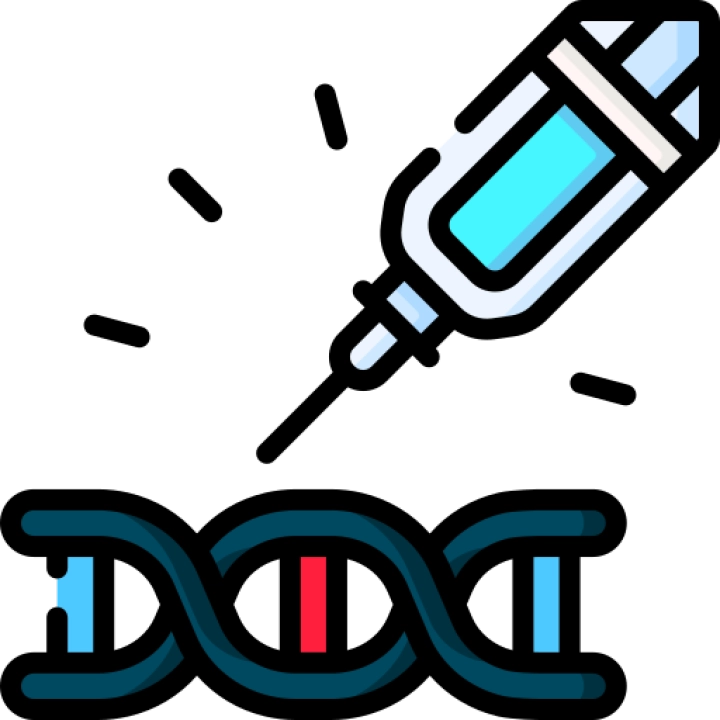Faculty: Graduate School of Health Sciences
This specialization focuses on the study of biological principles and their applications in medicine and healthcare. Students develop skills in molecular biology, biochemistry, physiology, and research methodologies. Graduates are prepared for careers in medical research, biotechnology, healthcare, and related fields.
Learning Objectives:
- Understand the fundamentals of biomedical sciences and their applications in healthcare.
- Develop proficiency in molecular biology, biochemistry, and physiology techniques.
- Learn techniques for conducting biomedical research and analyzing data.
- Explore principles of cell and molecular biology, genetics, and disease mechanisms.
- Analyze and interpret biomedical data and research findings.
- Develop critical thinking, problem-solving, and research skills for effective scientific inquiry.
Major Outline:
- Introduction to Biomedical Sciences - Overview of key concepts, principles, and practices in biomedical sciences. - Fundamentals of biological systems, disease mechanisms, and medical applications.
- Molecular Biology - Principles of molecular biology, including DNA, RNA, and protein synthesis. - Techniques for studying gene expression, regulation, and genetic engineering.
- Biochemistry - Principles of biochemistry, including metabolic pathways, enzyme kinetics, and molecular structures. - Techniques for analyzing biochemical processes and molecular interactions.
- Physiology - Principles of physiology, including organ systems, homeostasis, and regulatory mechanisms. - Techniques for studying physiological functions and responses.
- Cell and Molecular Biology - Principles of cell and molecular biology, including cell structure, function, and signaling pathways. - Techniques for studying cellular processes and molecular mechanisms.
- Genetics and Genomics - Principles of genetics and genomics, including inheritance, genetic variation, and genome analysis. - Techniques for studying genetic disorders, gene therapy, and personalized medicine.
- Disease Mechanisms - Principles of disease mechanisms, including pathophysiology, infection, and immunity. - Techniques for studying disease processes, diagnosis, and therapeutic interventions.
- Biomedical Research Methods - Principles of biomedical research methods, data analysis, and experimental design. - Techniques for conducting and evaluating research in biomedical sciences.
- Biomedical Sciences Practicum - Practical experiences in biomedical research, including laboratory research, internships, or capstone projects in medical research institutions or academic laboratories. - Application of acquired skills in practical scientific research scenarios.
- Biomedical Sciences Capstone Project - Comprehensive project applying skills in molecular biology, biochemistry, or physiology. - Presentation of a polished research project, scientific paper, or laboratory study.
Assessment Methods:
Molecular biology reports, biochemistry analyses, physiology studies, cell and molecular biology projects, genetics and genomics research, disease mechanism analyses, research methodology projects, practicum reports, capstone projects, group projects, and laboratory assessments.
Recommended Textbooks:
- \"Molecular Biology of the Cell\" by Bruce Alberts et al.
- \"Biochemistry\" by Jeremy M. Berg et al.
- \"Human Physiology: From Cells to Systems\" by Lauralee Sherwood.
- \"Cell and Molecular Biology\" by various authors.
- \"Genetics and Genomics\" by various authors.
- \"Disease Mechanisms\" by various authors.
- \"Biomedical Research Methods\" by various authors.
Prerequisites:
Basic knowledge of biology, chemistry, and mathematics. Suitable for students interested in medical research, biotechnology, and healthcare.
Major Duration:
Typically 4 years for a bachelor's degree, including coursework, laboratory research, practicum, and internships. Further advanced degrees or certifications may be required for specialized research roles.
Certification:
Graduates may receive a degree in Biomedical Sciences and pursue further education or professional certifications in related fields, such as a Master's or Ph.D. in Biomedical Sciences, Biotechnology, or related disciplines.
Target Audience:
Aspiring medical researchers, biotechnology professionals, healthcare providers, laboratory scientists, and individuals seeking careers in medical research institutions, biotechnology companies, healthcare organizations, and related fields.
This major equips students with the biological, molecular, and research skills necessary to excel in biomedical sciences, supporting careers in medical research, biotechnology, healthcare, and related fields.

